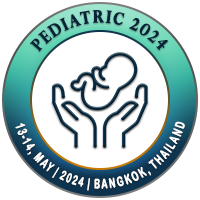
Kakule Isse Ndambi Kisunzu
Storslett Skole, NorwayTitle: Correlates of factors influencing learning outcome of early childhood development pupils: Uganda sample
Abstract
The study dealt with factors influencing learning outcome of ECD pupils in selected districts of West Nile Region. The study used triangulation, in that descriptive, interviews and linear regression were used. The population of the study was 52 and the sample size census was used. The results revealed a low mean for teacher factors (mean = 2.41; SD = 0.36); a low mean for learner’s factors (mean = 3.21; SD = 0.54); a low mean for school factors (mean = 2.44; SD = 0.56). It further revealed that home factors had a high mean (mean = 3.21; SD = 0.59) and cultural factors had a high mean (mean = 3.04; SD = 0.52). The study discovered a low mean (mean = 2.46; SD = 0.46) for cognitive domain; a low mean (mean = 2.50; SD 0.54) for psychomotor domain and a low mean (mean = 2.28; SD = 0.50) for affective domain. The null hypothesis was rejected with p-value respectively 0.003, 0.004 and 0.000 and the hypothesis which stated that there is no significant influence of home and cultural factors on learning outcome of ECD learners was rejected with p-value respectively 0.001 and 0.000. Teacher, school, learners, home, and culture factors have bearing on the cognitive, psychomotor, and affective learning outcome. of the cultural leaders should be reminded (ECD) learners. Those factors influenced the learning outcome, especially the home and culture. Hence, home and cultural leaders should be reminded on their role to support early childhood development learners for better learners’ outcome.
Biography
Will be updated soon.

